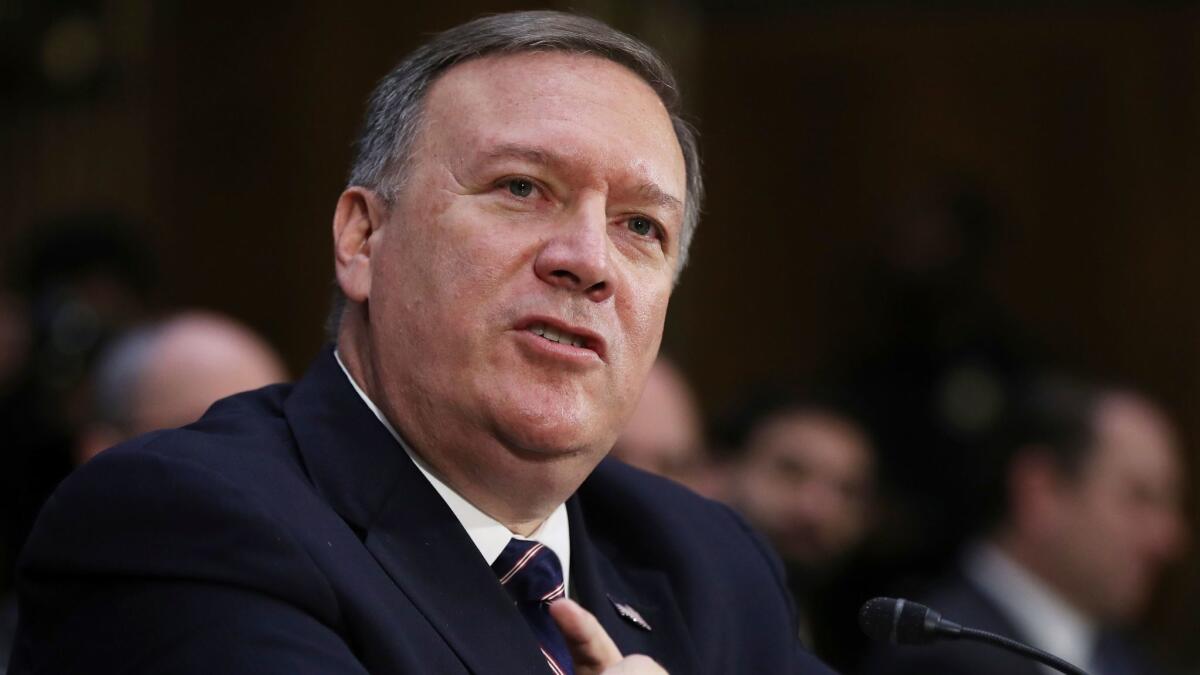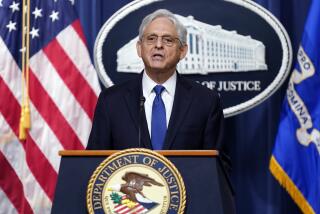Editorial: No, Mike Pompeo, it’s not ‘bullying’ for the House to seek information about Ukraine

Like it or not — and President Trump and officials of his administration obviously don’t like it — the House of Representatives has the constitutional authority to investigate whether the president has committed “high crimes and misdemeanors” justifying impeachment. To resist legitimate inquiries related to that responsibility is obstruction.
That’s why it’s alarming that Secretary of State Michael R. Pompeo has reacted with bluster and absurd accusations of bullying to a legitimate request from three House committees for information from State Department officials caught up in the furor over Trump’s notorious July 25 telephone call with Ukrainian President Volodymyr Zelensky.
That’s the conversation in which Trump, after reminding Zelensky that “we do a lot for Ukraine,” suggested that Ukraine should investigate former Vice President Joe Biden, a potential 2020 opponent. The Wall Street Journal has reported that Pompeo listened in on Trump’s call, which is at the heart of a whistleblower complaint filed by a member of the intelligence community.
As part of the impeachment process announced by House Speaker Nancy Pelosi, three House committees sent Pompeo a letter requesting interviews with State Department officials with possible knowledge of Trump’s contacts with Ukraine. The letter contained a schedule for depositions by officials including former U.S. Ambassador to Ukraine, Marie Yovanovitch, who was abruptly recalled from her posting.
In a reply addressed to Rep. Eliot L. Engel, the chairman of the House Foreign Affairs Committee, Pompeo said he would not make the officials available on those dates. He didn’t limit himself to questioning whether the committees were giving the potential witnesses enough time, a procedural dispute presumably open to negotiation. The secretary instead insulted the chairs of the committees by accusing them of trying to “intimidate, bully and treat improperly the distinguished professionals of the Department of State.”
Though less crude and less crazed than Trump’s suggestion that Rep. Adam B. Schiff, chairman of the Intelligence Committee, might be guilty of treason, Pompeo’s response was outrageous and sounded more like the posturing of a partisan politician — Pompeo’s role when he was a member of the House — than what we expect from the head of the Cabinet department traditionally regarded as nonpolitical. Although Pompeo didn’t explicitly rule out appearances by the officials at some later date, his tone was the opposite of cooperative.
It’s vital that the House interview witnesses who might shed light on this troubling episode, compelling their testimony by subpoena if necessary. As for Pompeo, if he wants to raise questions about timing and privileged communications — concerns he expressed in his letter to the committees — he can do so without hurling absurd accusations and pretending that a search for information about possible presidential wrongdoing is an attack on U.S. diplomats.
More to Read
A cure for the common opinion
Get thought-provoking perspectives with our weekly newsletter.
You may occasionally receive promotional content from the Los Angeles Times.










